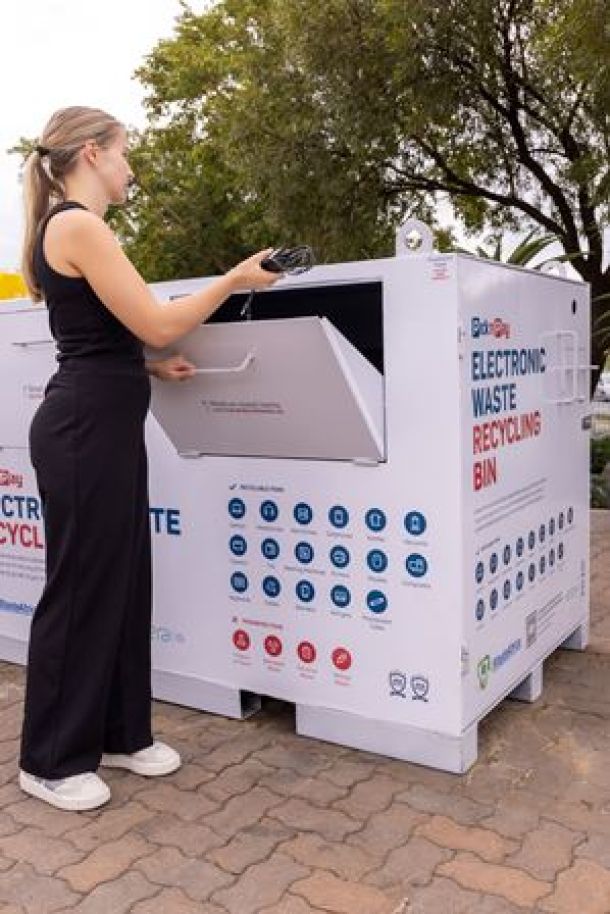Four South African cities strive to make all new buildings zero carbon
Residents and businesses moving into new buildings in Johannesburg, Cape Town, Durban and Tshwane will soon enjoy lower energy bills, and will generate less greenhouse gas (GHG) emissions, reducing their climate change impact.
High-efficiency energy performance requirements are being developed for all new buildings in these leading cities, thanks to their collaboration in the C40 Cities South Africa Buildings Programme. The ambition of the programme, launched today at an event in Tshwane, is to make zero carbon buildings the standard practice across South African cities.
The energy used to power, heat and operate buildings accounts for more than 25% of the GHG emissions produced by South African cities. Therefore, action to make buildings more energy efficient has huge potential to reduce GHG emissions. More than 70% of South Africans are expected to be living in cities by 2030. With growing urban populations comes increased demand for housing, commercial buildings, office space, schools, hospitals and other buildings. Ensuring these new buildings meet high-efficiency energy performance requirements will be crucial if cities and South Africa as a whole will deliver on its commitments to the Paris Agreement on Climate Change.
Representatives from ten cities across C40's global network have gathered in Tshwane this week to exchange best practice on building energy efficiency. The cities outside South Africa include, Boston, Chicago, Copenhagen, Los Angeles, Mexico City and Rio de Janeiro.
“South African cities are already seeing the effects of climate change, from the drought in Cape Town to the threat of rising seas and flooding in Durban,” said Mark Watts, Executive Director, C40. “Fortunately, mayors of these great cities are taking ambitious action today. Given the urgency of the climate threat, it is critical that all new buildings are constructed to the highest levels of energy performance. The bold leadership of these four mayors is setting the standard which the entire world can learn from. “
The Executive Mayor of Tshwane, Cllr Solly Msimanga, has fully embraced his role as the Mayor of the country’s “Green Capital” and his duty to put sustainability into practice as the foundation of responsible leadership. “Expect to see major shifts in our urban landscape through the C40 Cities South Africa Buildings Programme enhancing our Green Buildings Programme. Accelerated uptake of all available greening criteria will be the order of the day starting off with our very own infrastructure. It’s no coincidence that our municipal headquarters, Tshwane House, is a five-star Green-Rated building.”
"We are committed to making eThekwini Municipality the most caring and liveable city in Africa by 2030. Providing sustainable, accessible and energy efficient buildings is just one way we are delivering that commitment for our citizens. Our city contains some of the world’s leading experts on energy, building regulations and green buildings, and as such we are working hard to document our further learning during this programme to share with other C40 cities around the world.” said Mayor of Durban, Zandile Gumede.
The City of Cape Town is one of the leading cities in South Africa and globally in actively addressing climate change,” said Mayor of Cape Town, Patricia de Lille. “We recently adopted a Transit-Orientated Development Strategic Framework, to address the apartheid legacy of spatial inequality, high urbanisation rates and to improve the cost effectiveness of public transport. Our participation in the C40 South Africa Building Programme is a significant opportunity to enable the City to support lower carbon new build in infrastructure provision, energy efficient building design and clean energy supply and significantly reduced transport demand. Through the programme, we aim to develop and begin implementing more ambitious new building energy performance requirements that will build the path to a resource efficient, carbon neutral and climate resilient city by 2050.”
Since 2007, more than 230 buildings have been certified to the Green Star South Africa sustainable building rating system, developed and managed by the Green Building Council South Africa. The C40 South Africa Buildings Programme will support cities to move sustainable, energy-efficient new building to scale to become the new standard practice.
C40, in partnership with Sustainable Energy Africa (SEA), will support the four cities through locally employed technical professionals. City officials will be able to share knowledge and collaborate with cities outside of South Africa, facilitated through C40’s global city networks. This exchange will bring best practices in energy efficient building policy and practices to the four cities as well sharing these with other cities in South Africa. The C40 South Africa Buildings Programme is funded by the Children’s Investment Fund Foundation and is part of the Building Energy 2020 Programme.
Cllr Msimanga is delighted that the conference is being held close to home, in fact within the green-rated municipal headquarters, and trusts that the event is a great success. “This conference must serve to harness participating cities’ collective energies to transform our urban environments as we intensify the urgency of climate action.”
Mayors of Tshwane, Johannesburg, Cape Town and Durban to introduce requirements ensuring all new buildings are energy efficient, cutting electricity bills and greenhouse gas emissions.
C40 Cities South Africa Buildings Programme, launched on 16 April 2018 in Tshwane, aspires to make zero carbon buildings standard practice across South African cities
News Category
- International retailers
- On the move
- Awards and achievements
- Legislation
- Wine and liquor
- Africa
- Going green
- Supplier news
- Research tools
- Retailer trading results
- Supply chain
- Innovation and technology
- Economic factors
- Crime and security
- Store Openings
- Marketing and Promotions
- Social Responsibility
- Brand Press Office
Related Articles

Pick n pay upcycles air-conditioning systems, s...

Shoprite Group opens pathways to job opportunit...

Pick n Pay empowers shoppers in the fight again...

Massmart implements early leak detection techno...


